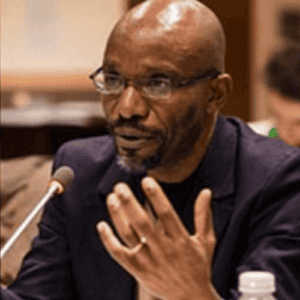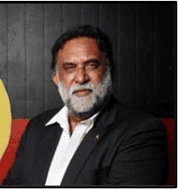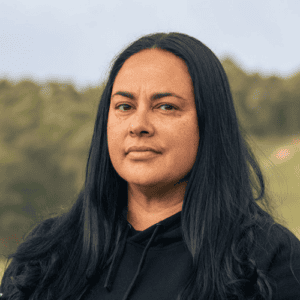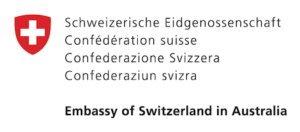Wednesday 9th April, 2025
5.00pm-6.30pm AEST
UNDRIP was adopted by the UN General Assembly in 2007 and endorsed by the Australian government in 2009. This webinar took place in the lead up to the UN Permanent Forum on Indigenous Issues (UNPFII) in New York with the theme of "Implementing the UNDRIP within United Nations Member States and the United Nations system, including identifying good practices and addressing challenges”.
The webinar helped to build understanding of UNDRIP and the Australian state’s responsibilities for implementing it. The webinar built wider awareness of the rights in UNDRIP and how it is being applied to current processes of truth telling and treaty making in Victoria, Australia. The webinar provided an opportunity to engage with the UN Special Rapporteur on the rights of Indigenous Peoples, Dr Albert K. Barume, following his recent private visit to Australia, where he met with many representatives of First Nations. The visit was organised by the Foundation for Aboriginal and Islander Research and Action (FAIRA).
 Dr Albert K. Barume was appointed as UN Special Rapporteur on the rights of Indigenous Peoples in December 2024. He holds a Ph.D. in International Human Rights Law and has over 25 years of experience working on Indigenous Peoples’ rights at national, regional and international levels. He was an Independent Expert on the rights of Indigenous Peoples at the African Commission on Human and People’s Rights. Dr Barume worked as a Senior Specialist on the rights of Indigenous Peoples at the International Labour Organisation and later served as Chairperson and Member of the Expert Mechanism on the Rights of Indigenous Peoples (EMRIP).
Dr Albert K. Barume was appointed as UN Special Rapporteur on the rights of Indigenous Peoples in December 2024. He holds a Ph.D. in International Human Rights Law and has over 25 years of experience working on Indigenous Peoples’ rights at national, regional and international levels. He was an Independent Expert on the rights of Indigenous Peoples at the African Commission on Human and People’s Rights. Dr Barume worked as a Senior Specialist on the rights of Indigenous Peoples at the International Labour Organisation and later served as Chairperson and Member of the Expert Mechanism on the Rights of Indigenous Peoples (EMRIP).

Les Malezer is the Founding Chairperson of the Foundation for Aboriginal and Islander Research Action (FAIRA). He has dedicated his life to promoting and defending the rights of Indigenous Peoples in Australia. He played a significant role in the development and adoption of the UN Declaration on the Rights of Indigenous Peoples in 2007.

Ngarra Murray is Co-Chair of the First Peoples’ Assembly of Victoria, of which she is an elected member. Ngarra previously led Oxfam Australia’s First Peoples’ Program as the Executive Lead, where she played a critical role in the success of the Straight Talk program, supporting hundreds of First Nations women to engage with political systems and forge important connections globally.
Alumni listed with this symbol have a detailed profile – click to view.

DTP acknowledges with appreciation the support of the Embassy of Switzerland in Australia for this webinar series.

DTP acknowledges the traditional custodians of the land on which we work, the Bedegal people of the Eora Nation. We recognise their lands were never ceded, and we acknowledge their struggles for recognition and rights and pay our respects to the Elders – past, present – and the youth who are working towards a brighter tomorrow. This continent always was and always will be Aboriginal land.
Aboriginal and Torres Strait Islander peoples should be aware that this website contains images or names of people who have passed away.
DTP acknowledges the traditional custodians of the land on which we work, the Bedegal people of the Eora Nation. We recognise their lands were never ceded, and we acknowledge their struggles for recognition and rights and pay our respects to the Elders – past, present – and the youth who are working towards a brighter tomorrow. This continent always was and always will be Aboriginal land.
Aboriginal and Torres Strait Islander peoples should be aware that this website contains images or names of people who have passed away.
Privacy Policy | Terms of Use | Disclaimer | Policies
© 2022 Diplomacy Training Program | ABN 31 003 925 148 | Web Design by Studio Clvr